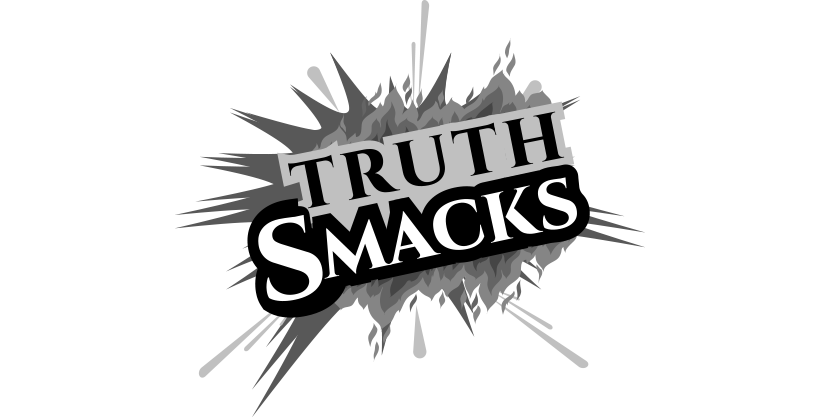Protecting Your Online Investment: A Comprehensive Guide to Web Security and Maintenance Services
In our increasingly digital world, having a strong online presence is a cornerstone of success for individuals, businesses, and organizations. Whether it’s a personal blog, a corporate website, or an e-commerce platform, your website is often the first point of contact between you and your audience. To ensure that this virtual storefront remains secure and functions smoothly, web security and maintenance services are paramount. In this comprehensive guide, we will delve into the world of web security and maintenance services, shedding light on their importance and the strategies involved in safeguarding your online investment.
The Digital Landscape
The digital landscape is constantly evolving, and with it, the threat landscape. Cyberattacks have become more sophisticated and prevalent, targeting websites of all sizes and purposes. Here are some compelling reasons why web security and maintenance services are vital:
1. Protecting Sensitive Data
Many websites collect and store sensitive information, such as customer data, payment details, and personal information. Inadequate security measures can expose this data to malicious actors, leading to data breaches and severe consequences for both website owners and users.
2. Preserving Reputation
A security breach or website downtime can erode trust and damage your online reputation. Your website is often the face of your business or brand, and a compromised site can lead to a loss of customer trust and credibility.
3. Legal Compliance
Numerous regulations and laws require website owners to protect user data, such as the General Data Protection Regulation (GDPR) in Europe and the Health Insurance Portability and Accountability Act (HIPAA) in the United States. Failing to comply with these regulations can result in significant penalties.
4. Ensuring Business Continuity
Website downtime can be disastrous for businesses, especially e-commerce sites. It results in lost revenue and, in some cases, can even lead to business failure. Ensuring the continuous availability of your website is essential for business continuity.
Key Components of Web Security and Maintenance Services
To protect your online investment, you need a multifaceted approach to web security and maintenance. Let’s explore the key components and practices typically associated with these services:
1. Security Monitoring
Continuous monitoring is the first line of defense. It involves real-time threat detection and alerts for suspicious activities. Advanced security monitoring tools can detect patterns indicative of cyberattacks, such as brute-force login attempts or unusual data access.
2. Firewalls and Intrusion Detection Systems
Firewalls act as barriers between your website and potential threats. They filter incoming traffic and block malicious requests. Intrusion Detection Systems (IDS) are designed to detect suspicious behavior and notify administrators of potential security breaches.
3. Regular Updates
Keeping your website’s software and components up-to-date is crucial. This includes your content management system (CMS), plugins, themes, and underlying server software. Updates often contain patches for known vulnerabilities, and failing to apply them can leave your site exposed.
4. Malware Scanning and Removal
Malware is a constant threat to websites. Periodic malware scanning tools help identify and remove malicious code that may have been injected into your site. Regular scans are essential to detect and eradicate malware promptly.
5. Secure Sockets Layer (SSL) Certificate
Implementing SSL certificates is fundamental for encrypting data transmitted between your website and its users. It ensures secure communication and is especially vital for websites handling sensitive information, such as e-commerce platforms.
6. Data Backups
Backing up your website data regularly is a fundamental part of recovery planning. In case of an attack or technical failure, having secure backups can mean the difference between a minor inconvenience and a catastrophic data loss event.
7. User Authentication and Access Control
Protecting against unauthorized access is a cornerstone of web security. Implementing strong user authentication methods and proper access controls helps to prevent unauthorized users from making changes or accessing sensitive data.
8. Content Review
Regularly reviewing and updating the content on your website is essential. Outdated or irrelevant content can pose security risks or harm your online reputation. Ensure that your content remains accurate and secure.
9. Performance Optimization
Optimizing your website’s performance is not just about user experience; it’s also a security measure. A well-optimized website can handle traffic spikes more efficiently and reduce the risk of downtime due to resource exhaustion.
10. Emergency Response and Incident Management
In the unfortunate event of a security breach or other critical incident, having an incident response plan in place is vital. This plan outlines the steps to take to contain, mitigate, and recover from the incident.
11. User Training
Human error is a common entry point for cyberattacks. Providing training to website administrators and content creators on best security practices and how to recognize and respond to potential threats can significantly enhance your site’s security.
12. Regulatory Compliance
Depending on the nature of your website and the data it handles, you may need to ensure compliance with specific data protection and privacy regulations. Staying updated on these requirements and implementing necessary measures is essential.
13. DDoS Mitigation
Distributed Denial of Service (DDoS) attacks can disrupt services by overwhelming your server with a massive amount of traffic. Implementing DDoS mitigation measures helps ensure the availability of your website during an attack.
The Importance of Web Security and Maintenance Services
Understanding the importance of web security and maintenance services is crucial for website owners. Let’s explore some key reasons why these services are integral to protecting your online investment.
1. Preventing Data Breaches
Data breaches are not only costly but also damaging to your reputation. A breach can result in legal consequences and financial penalties, not to mention the loss of customer trust. Implementing robust security measures helps prevent data breaches and their associated risks.
2. Defending Against Cyber Threats
Cyber threats are continually evolving, becoming more sophisticated and diverse. Web security services are designed to adapt to these changing threats and provide a strong defense against attacks like SQL injection, cross-site scripting (XSS), and ransomware.
3. Ensuring Business Continuity
Website downtime, whether due to a cyberattack or technical issues, can have severe financial repercussions. Maintenance services help prevent unexpected downtime by addressing vulnerabilities and optimizing your website’s performance.
4. Enhancing User Trust
Users are more likely to trust and engage with a website that is secure and reliable. A secure website communicates professionalism and a commitment to user privacy, which can lead to increased user trust and loyalty.
5. Legal and Regulatory Compliance
Failing to comply with data protection and privacy regulations can lead to substantial fines and legal actions. Implementing security measures and ensuring compliance helps protect your business from legal repercussions.
Best Practices for Web Security and Maintenance
Now that we’ve established the importance of web security and maintenance services, let’s explore some best practices for effectively safeguarding your website:
1. Regular Security Audits
Conduct regular security audits to assess your website’s vulnerabilities and weaknesses. Identify potential entry points for attackers and take steps to address them.
2. Strong Password Policies
Enforce strong password policies for user accounts, including administrators and contributors. Encourage the use of complex passwords and two-factor authentication.
3. Website Firewall
Implement a web application firewall (WAF) to protect against common web application threats, such as SQL injection and XSS attacks.
4. Regular Software Updates
Stay diligent in keeping all your website components up-to-date. This includes your CMS, plugins, and themes. Regular updates often contain patches for known vulnerabilities.
5. User Training
Educate your website administrators and content creators on security best practices. Teach them how to recognize phishing attempts, suspicious activity, and how to respond to potential threats.
6. Incident Response Plan
Develop a well-defined incident response plan that outlines the actions to take in the event of a security breach or critical incident. Time is of the essence in incident response, and having a plan can minimize damage.
7. Backups
Regularly back up your website data and store backups in a secure location. Automate this process if possible to ensure consistency.
8. Third-Party Vendors
If your website relies on third-party services or vendors, ensure that they also follow robust security practices. Weak links in the chain can compromise your website’s security.
9. HTTPS Implementation
Implement HTTPS for your website. Besides securing data transmission, search engines tend to favor secure sites in their rankings, which can benefit your SEO.
10. Content Security
Review and update your website’s content regularly. This includes checking for outdated, irrelevant, or potentially harmful content.
11. Security Plugins and Tools
Utilize security plugins and tools that are specifically designed to enhance your website’s security. These can include firewall plugins, malware scanners, and security monitoring tools.
12. Data Encryption
Ensure that sensitive data is stored and transmitted in encrypted form. This includes encrypting databases and using secure data transmission protocols.
13. User Access Control
Implement role-based access control to restrict user permissions based on their roles and responsibilities. Only grant access and privileges that are necessary for each role.
14. Collaborate with Security Experts
Consider working with cybersecurity experts or hiring a dedicated security team. Their expertise can provide an extra layer of protection and ensure that you’re up to date with the latest threats and best practices.
Protecting your online investment through web security and maintenance services is essential in today’s digital landscape. Websites have become a primary target for cyberattacks, and the consequences of inadequate security measures can be severe. By implementing a comprehensive security strategy and adhering to best practices, you can fortify your website against threats, preserve your online reputation, and maintain the trust of your users and customers. In a world where the digital realm is often the first point of contact, safeguarding your website is a prudent and necessary step toward ensuring the longevity and success of your online presence.












